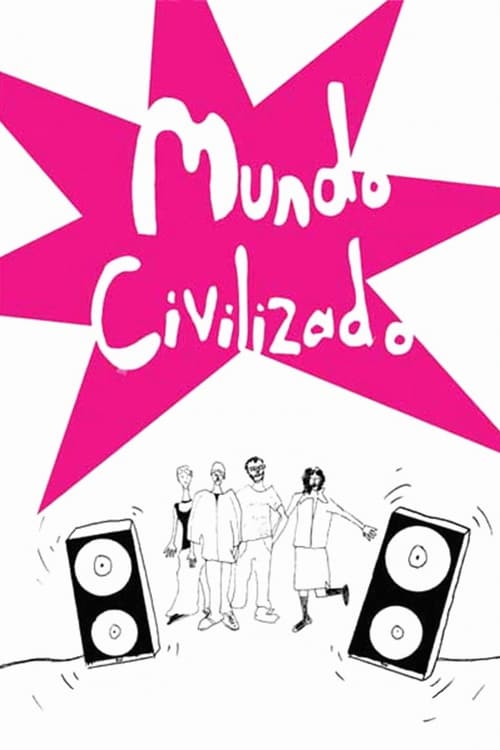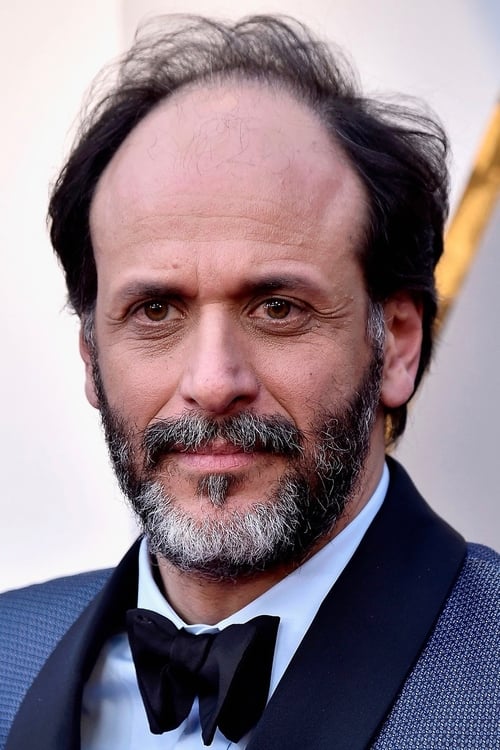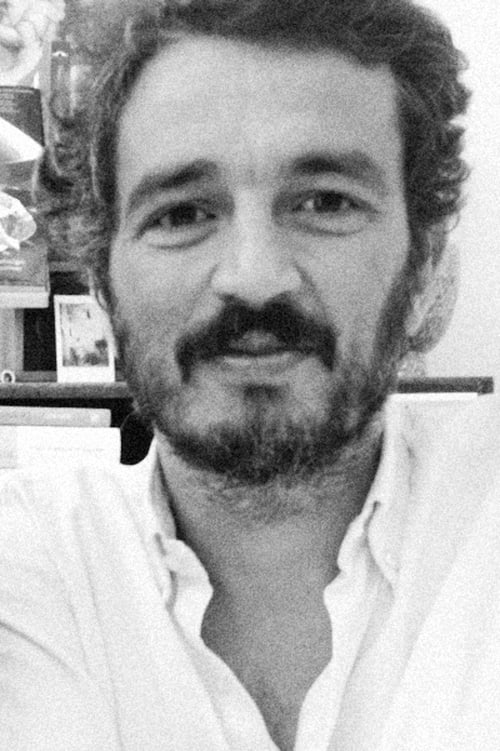Mundo Civilizado (2003)
Gênero : Música, Documentário
Runtime : 1H 38M
Director : Luca Guadagnino
Escritor : Giulio Calvani, Marco Serrecchia
Sinopse
Francesca, Morgana, Edo and Antonio. Four of today’s youngsters. Four inadvertent representatives of today’s generation of 20-year-olds who “do whatever I want”.By chance they find that they’re spending a week in Catania together, the Baroque city perched on the slopes of a volcano, the continual rumbling of which seems to reflect their restlessness…

A look inside the world of a young Japanese woman during the time of the Tokyo Olympiad (1964), from French New Wave Left Bank director Chris Marker.

A young man, who served as a peacekeeper in Bosnia and Herzegovina for a few months during the war, recounts his experiences. Throughout the film, we only see his face filmed in close-up, along with a few photos. The interview acts as a strong testimony to the failure of the international community in the Yugoslav crisis.

Paris 2002. Yellow cats appear on the walls. Chris Marker is looking for these mysterious cats and captures with his camera the political and international events of these last two years (war in Iraq...).

Made entirely on Roger Wagner's HyperStudio software, Chris Marker explores set theory, using Noah's Ark as an example.

A collection of three short 'haiku videos' by Chris Marker. The first haiku, 'Yanka / Tchaika', shows the river Seine passing under a bridge. A bird in flight stays motionless in the air. The second haiku, 'Owl Gets in Your Eyes', shows Catherine Belkhodja smoking a cigarette while a superimposed shot of an owl in flight fades in and out over her face. The third haiku is a tribute to the Lumière brothers. In an homage to their style, Marker documents an event of daily life in only a minute, choosing to film work on the Petite Centure (a Parisian railway) in May 1994. Due to the work, no train actually passes and we are simply shown desolate train tracks, making the haiku a dry parody of 'L'Arrivée d'un train en gare de La Ciotat'.

During the solar eclipse of August 11, 1999, Chris Marker documents the French public looking up to the skies, with many of them wearing eclipse glasses.

From Chris Marker's collection Bestiaire aka Petit Bestiaire (1990), consisting of three video haikus.

After a military coup d'état, political dissidents seek refuge in a foreign embassy. Over the next few days, they are joined by more and more people who are fleeing the military assault: teachers, students, intellectuals, artists, and politicians.

Il Supplente is a 2007 Italian comedy short film directed by and starring Andrea Jublin. He plays a substitute teacher who seems to be more hormonal than his teenage class and instigates a series of crazy games in which students are marked on their ability to mimic animals. The film was nominated for an Oscar for Best Live Action Short Film.

Short documentary ordered by the magazine "Présence Africaine". From the question "Why is the african in the Human museum while Greek or Egyptian art are in Le Louvre?", the two directors expose and criticise the lack of consideration for African art. The film was censored in France for eight years because of its anti-colonial perspective.
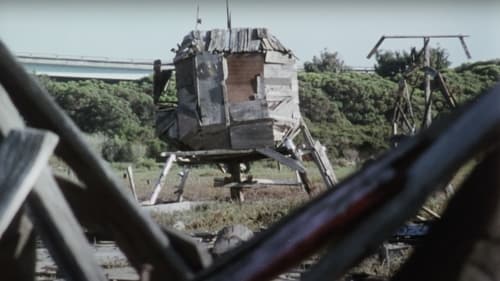
A short film that shows Boundless, Surreal objects that are juxtaposed with our present World. Cars, Motorways, noise of our modern society; A giant city in the distance - all that shrouds this lonely and forgotten island of Dreams. Filmed at the Emeryville Mudflats near San Francisco.
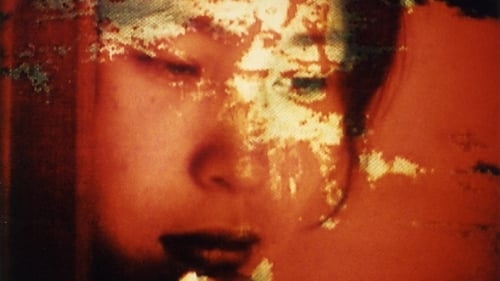
The French computer programmer Laura inherits the task of making a computer game of the Battle of Okinawa in Japan during World War 2. She searches the Internet for information on the battle, and interviews Japanese experts and witnesses. The extraordinary circumstances of the Battle of Okinawa lead Laura to reflect deeply on her own life and humanity in general, particularly the influence of history and memories.
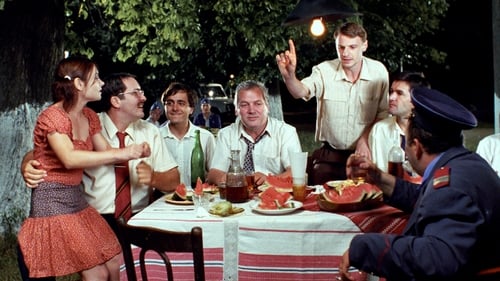
Estudo bem-humorado sobre o “jeitinho” romeno, filme mostra a criatividade com que pessoas comuns desenvolvem esquemas para contornar os absurdos do cotidiano, como na época do regime de Nicolae Ceausescu (1918-1989). Uma fina ironia percorre seis episódios que baseiam-se em “lendas urbanas” do período que o governo comunista romeno definia como “a era do ouro”.

Big dreams, big blunts, big rims, and big guns. It's time to get gangsta gangsta. Ninja and Yo Landi are wheelchair-bound lovers and real gangstas. They live in the outskirts of civilization, they shoot guns for fun, smoke massive joints, and sleep in the woods. They don't have any bling to show for their gangsta cred, but the world deserves to know who they are. They're tramps, and their wheels are starting to fall off. Ninja become despondent over their vagabond existence, but Yo Landi won't let him give up. What ensues is straight up gangsta mayhem, the realist of the real, true gangsta shit.
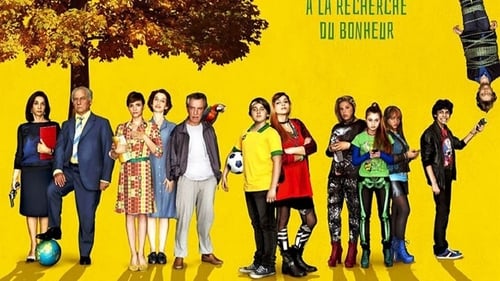
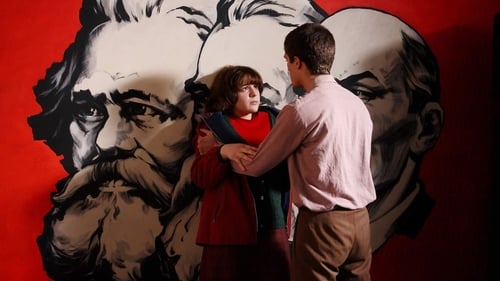
Late '50s to early '60s, when the space war between the Soviet and US was fiercely going on, a fifteen-year-old member of the communist party, Luciana, develops her ideals while living with her bourgeois stepfather, and among male chauvinists in a communist group in Rome. Her only friend is her brother Arturo, who dreams of going to space but is unable to do so due to his epilepsy.
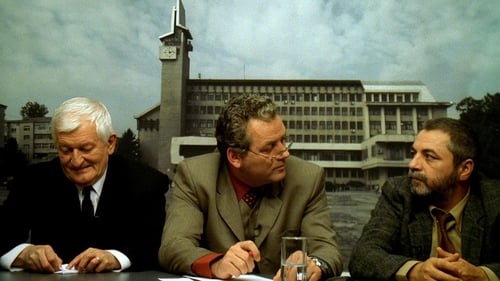
Apresentador de TV resolve chamar figuras do povo para um debate sobre o aniversário da deposição do ditador romeno Ceaucescu, mas só consegue um professor de história de ressaca e um aposentado que ganha a vida como Papai Noel.
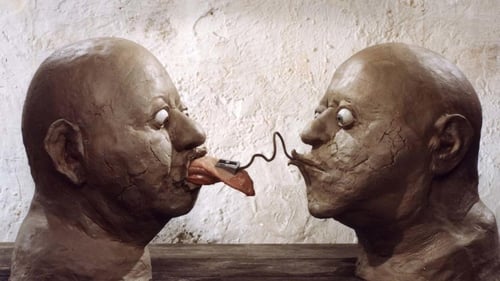
A three-part depiction of various forms of communication.
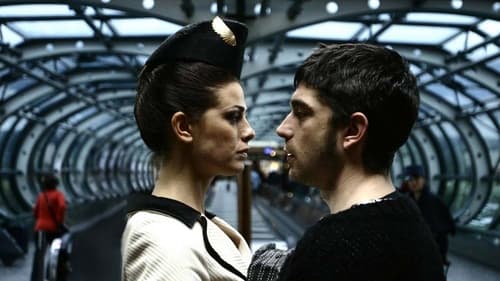
Dante, a pony express in serious debt, meets Nina, a hostess stuck in Torino for the night.
